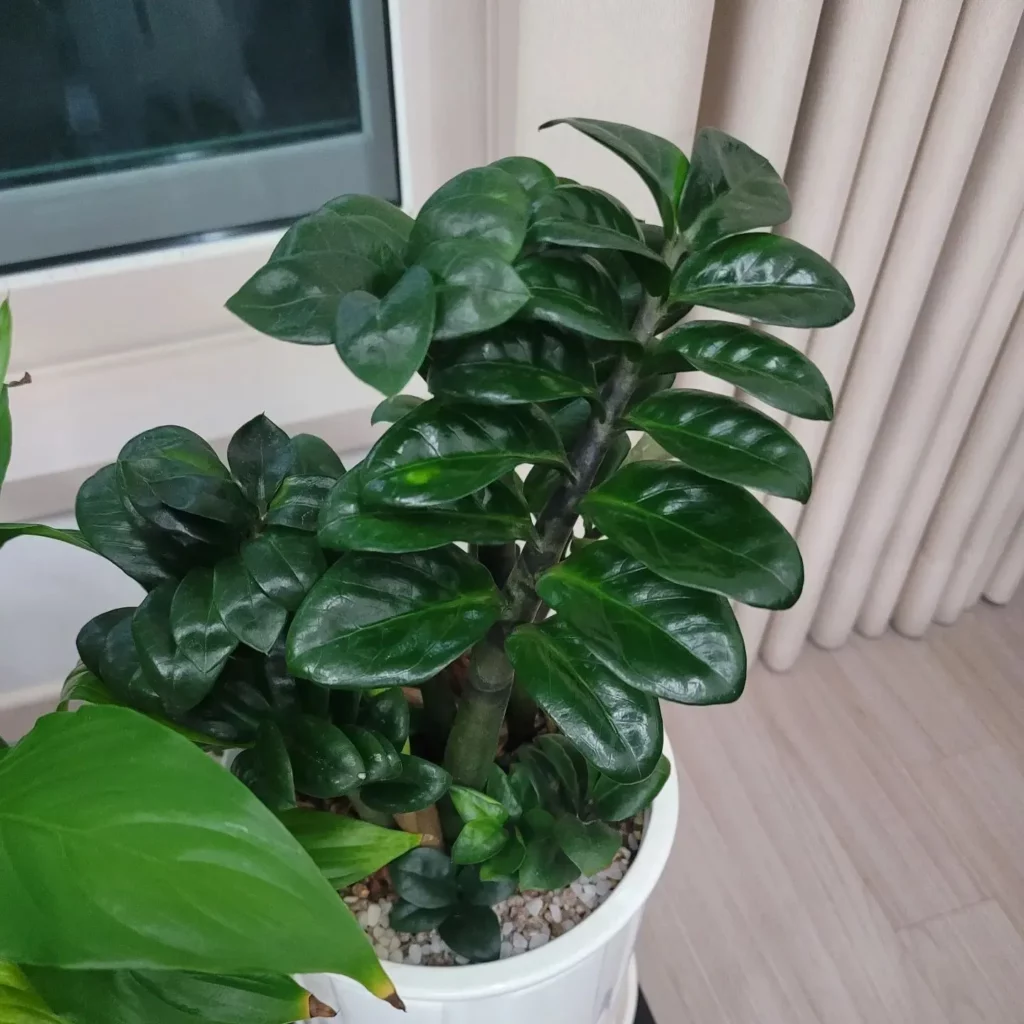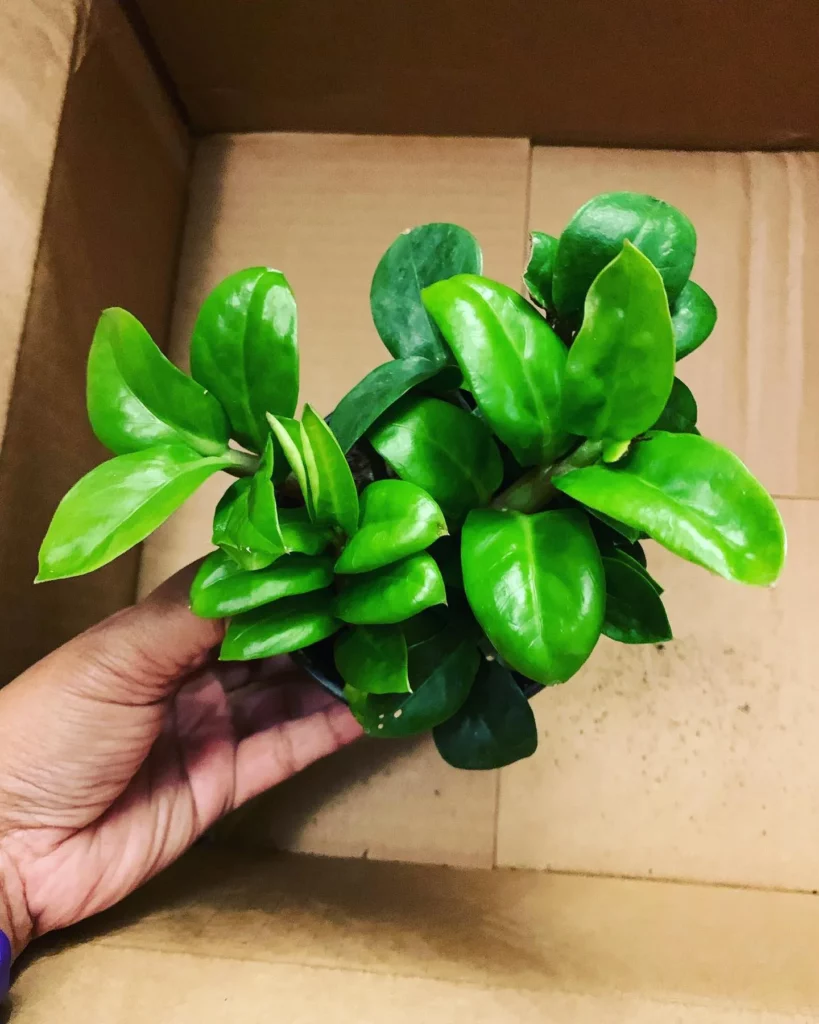Fertilize ZZ plants sparingly, using a balanced, water-soluble fertilizer diluted to half strength, every 4-6 months during the growing season for lush growth.
Fertilizing ZZ plants with a balanced 10-10-10 or 20-20-20 fertilizer every 6-8 weeks during their growth season, diluted as per instructions and applied to moist soil, can significantly enhance their health and appearance.
Incorporating organic nutrients, such as compost or worm castings, and opting for slow-release fertilizers, ensures a steady nutrient supply, fostering lush growth.
No products found.
Understanding ZZ Plant Nutrient Requirements

ZZ plants require specific nutrients, including nitrogen, phosphorus, and potassium, to thrive and achieve lush growth. These essential elements play vital roles in the plant’s overall health and development.
Nitrogen is crucial for leaf and stem growth, while phosphorus promotes root development and flowering. Potassium, on the other hand, helps improve the plant’s overall resilience and resistance to diseases.
To ensure your ZZ plant receives the right balance of nutrients, it is important to choose a fertilizer that contains these elements. Look for a balanced fertilizer with a ratio of 10-10-10 or 20-20-20, which means it contains equal parts of nitrogen, phosphorus, and potassium.
This will provide a well-rounded diet for your ZZ plant and support its growth and vitality.
Choosing the Best Fertilizer for ZZ Plants

Choosing the right fertilizer is crucial for meeting the nutritional needs of ZZ plants and promoting their overall health and growth. With a variety of options available in the market, it’s important to select a fertilizer that provides the necessary nutrients in the right balance.
When looking for the best fertilizer for ZZ plants, consider factors such as the plant’s growth stage, the desired outcome, and the fertilizer’s NPK ratio.
ZZ plants thrive when fertilized with a balanced fertilizer with a ratio of 10-10-10 or 20-20-20. This means the fertilizer should contain 10% nitrogen, 10% phosphorus, and 10% potassium.
These essential nutrients play a vital role in supporting the plant’s overall development. Nitrogen promotes green foliage, phosphorus enhances root growth, and potassium aids in overall plant health and disease resistance.
When selecting a fertilizer, it’s also important to consider the brand’s reputation and the specific needs of your ZZ plant. Some popular fertilizer brands known for their quality and effectiveness include Brand X, Brand Y, and Brand Z.
Types of Fertilizers for ZZ Plants
There are different types of fertilizers available for ZZ plants, including organic options. Organic fertilizers, such as compost and worm castings, are derived from natural sources and provide a slow-release of nutrients to the plants.
| Fertilizer Type | Nutrient Content | Advantages |
|---|---|---|
| Balanced Fertilizer | 10-10-10 or 20-20-20 (NPK ratio) | Provides essential nutrients for overall plant growth |
| Organic Fertilizer | Varies depending on the source | Improves soil health, enriches micronutrients, and promotes beneficial microorganisms |
| Slow-Release Fertilizer | Varies depending on the brand | Ensures a steady release of nutrients over time, reducing the risk of over-fertilization |
Effective ZZ Plant Fertilization Techniques

Proper fertilization techniques are essential for providing ZZ plants with the necessary nutrients to thrive and flourish.
To achieve lush growth, it is important to use a balanced fertilizer with a ratio of 10-10-10 or 20-20-20, which signifies the percentage of nitrogen, phosphorus, and potassium in the fertilizer. Dilute the fertilizer according to the instructions provided on the label to avoid over-fertilizing, as excessive amounts can harm the plant.
It is recommended to fertilize ZZ plants every 6-8 weeks during the growing season, which typically occurs in spring and summer. It is crucial to apply the fertilizer when the soil is moist, as this helps ensure optimal absorption by the plant.
Avoid fertilizing when the soil is dry, as it may lead to nutrient burn or ineffective fertilization.
When it comes to applying the fertilizer, it is best to distribute it evenly around the plant’s root zone. You can use a watering can or a sprayer to apply the diluted fertilizer solution.
Take care not to pour the fertilizer directly onto the ZZ plant’s leaves or stems, as this can cause damage. Additionally, it is important to follow the package instructions provided by the manufacturer, as different fertilizers may have specific application guidelines.
During the dormant period in winter, it is advisable to reduce fertilization or even stop it altogether. ZZ plants naturally have a slower growth rate during this period, and over-fertilizing can be detrimental.
Resume regular fertilization when the plant enters its active growth phase again in spring.
Organic Fertilizers for ZZ Plants

Organic fertilizers offer a natural and eco-friendly way to nourish ZZ plants, providing them with essential nutrients for optimal growth.
These fertilizers are derived from natural sources, such as compost, worm castings, and seaweed extract, and they offer several advantages over synthetic fertilizers. Not only do they provide nutrients, but they also improve soil structure and promote beneficial microbial activity.
Compost is a popular choice for organic fertilizer as it enriches the soil and releases nutrients slowly over time. It improves soil moisture retention and supports the development of beneficial organisms that help break down organic matter.
Worm castings, also known as vermicompost, are another excellent organic option. They are rich in essential nutrients, including nitrogen, phosphorus, and potassium, and they help improve soil structure and enhance plant growth.
Seaweed extract is a natural fertilizer that offers numerous benefits for ZZ plants. It contains a wide range of trace elements, growth hormones, and beneficial microorganisms that enhance root development and improve the plant’s overall health.
Seaweed extract also acts as a stress reliever for plants, helping them tolerate environmental challenges such as drought and temperature fluctuations.
Slow-Release Fertilizers for ZZ Plants

Slow-release fertilizers are an excellent option for maintaining a consistent nutrient supply to ZZ plants, ensuring their health and vitality.
These fertilizers are designed to release nutrients gradually over an extended period, providing a sustained source of nourishment for the plants. This slow-release feature offers several benefits, including reducing the risk of over-fertilization and minimizing the need for frequent applications.
When choosing a slow-release fertilizer for your ZZ plant, look for products specifically formulated for houseplants or indoor gardening. These fertilizers typically come in granule or pellet form, with each particle coated in a nutrient-rich, slow-release coating.
This coating determines the release rate of the nutrients, ensuring a steady supply to the plant.
To use a slow-release fertilizer, simply follow the instructions provided on the packaging. In general, you’ll need to apply the fertilizer directly to the soil surface around the base of the plant.
Avoid placing the fertilizer too close to the stem to prevent potential burn or damage. Once applied, water the plant thoroughly to activate the slow-release process.
| Benefits of Slow-Release Fertilizers for ZZ Plants |
|---|
| 1. Consistent Nutrient Supply: Slow-release fertilizers deliver nutrients to ZZ plants gradually, providing a steady source of nourishment over time. |
| 2. Reduced Risk of Over-Fertilization: Since the nutrients are released slowly, there is less chance of over-fertilizing the plant, which can lead to nutrient imbalances and potential damage. |
| 3. Convenience: Slow-release fertilizers only need to be applied every few months, saving time and effort compared to frequent applications of traditional liquid or granular fertilizers. |
| 4. Improved Plant Growth: The steady nutrient release from slow-release fertilizers promotes healthy root development, foliage growth, and overall plant vigor. |
Conclusion

By following these ZZ Plant fertilization tips, you can ensure lush growth and vibrant foliage, making your ZZ plants a beautiful addition to your indoor space.
To fertilize ZZ plants for optimal growth, it is important to use a balanced fertilizer with the right ratio of nutrients. A fertilizer with a ratio of 10-10-10 or 20-20-20, containing 10% nitrogen, 10% phosphorus, and 10% potassium, is recommended.
This will provide the necessary nutrients for the ZZ plants to thrive.
Fertilize your ZZ plant every 6-8 weeks during the growing season, which is typically in the spring and summer. Dilute the fertilizer according to the instructions on the label and apply it to the soil when it is moist, avoiding dry conditions.
This will ensure maximum absorption and prevent damage to the plant.
Organic options such as compost, worm castings, and seaweed extract are also beneficial for ZZ plants. These natural fertilizers provide essential nutrients and micronutrients that promote root development and reduce stress in the plant.
Additionally, slow-release fertilizers are a good choice, as they release nutrients gradually over time, preventing the risk of over-fertilization.
Remember to follow the guidelines on the fertilizer packaging and avoid heavy fertilization during the plant’s dormant period in winter.
By implementing these ZZ Plant fertilization tips, you can keep your ZZ plants healthy and thriving, enjoying their lush growth and vibrant foliage year-round.
Make sure to check out our article on Do ZZ Plants Purify Air? The Science Behind It. And after reading that ZZ Plant article, check out our article on Temperature And Humidity Requirements For Healthy ZZ Plants.
FAQ
Q: What ratio of nutrients should I use to fertilize my ZZ plants?
A: It is recommended to use a balanced fertilizer with a ratio of 10-10-10 or 20-20-20. This means the fertilizer should contain 10% nitrogen, 10% phosphorus, and 10% potassium.
Q: How often should I fertilize my ZZ plants?
A: Fertilize the ZZ plant every 6-8 weeks during the growing season, which is typically spring and summer.
Q: Should I dilute the fertilizer before applying it to my ZZ plants?
A: Yes, it is important to dilute the fertilizer according to the instructions on the label before applying it to the soil when it is moist, not dry.
Q: Can I use organic options to fertilize my ZZ plants?
A: Yes, organic options such as compost, worm castings, and seaweed extract can be used to fertilize ZZ plants. These provide natural nutrients and micronutrients for plant growth.
Q: What are slow-release fertilizers and are they suitable for ZZ plants?
A: Slow-release fertilizers are a good option for ZZ plants as they provide a steady supply of nutrients over time. They can help prevent over-fertilization and promote healthy growth.
Q: Can I fertilize my ZZ plants during winter?
A: It is best to avoid heavy fertilization during the ZZ plant’s dormant period in winter. Follow the guidelines on the fertilizer packaging and adjust the fertilization schedule accordingly.





